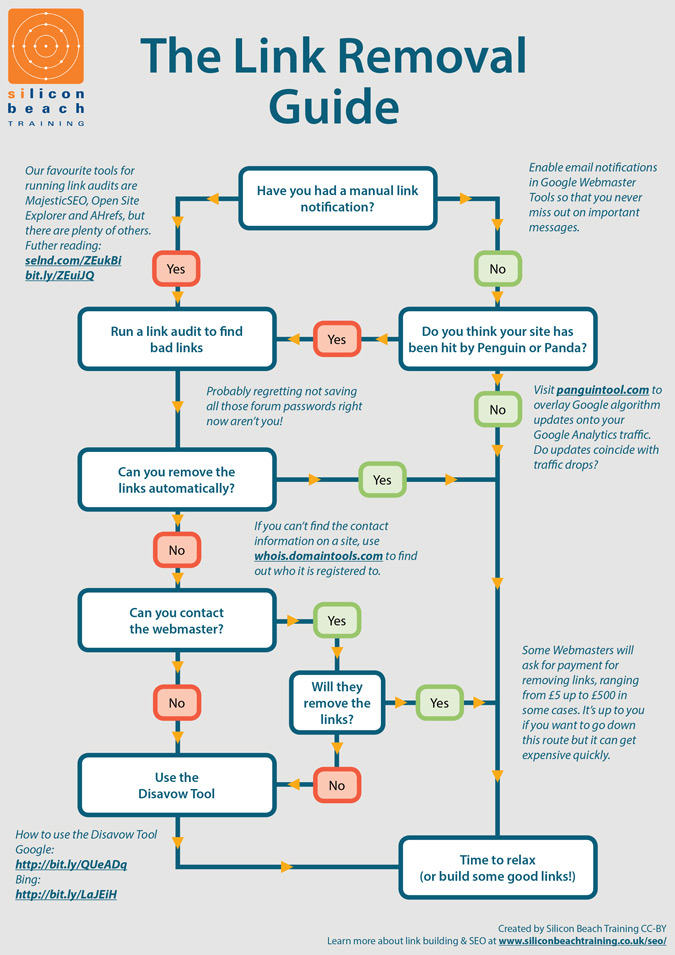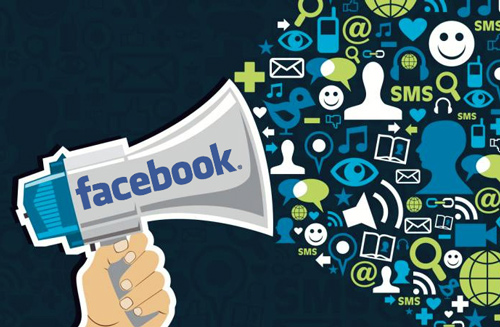The famous and fabled are always reeling off catchy one-liners.
Some of them mean nothing, some are just funny and some are life-altering.
Most of these quotes were concocted prior to the existence of the internet, let alone blogging, but in many ways they’re appropriate as guidelines for online writers in the modern age.
None are steadfast rules but all contain something insightful.
Of course, to become a great blogger, you should come on our Blogging and Content Marketing Training which is ideal for both businesses and individuals.

So without further ado, here are 20 famous (or almost-famous) quotes that have nothing todo with blogging but which every blogger should remember.
Heather Buckley
26 Jul 2013
|
So it's finally here! Apple CEO Tim Cook announced iOS 7 yesterday, hailing it as the "biggest change to iOS since the introduction of the iPhone". It's been long-awaited and much debated but now we can finally see what all the fuss is about. It's not going to be out for a while yet though, so now's the perfect time to learn how to create apps, on our iOS App Development Course. Now there a plenty of articles out there which go into great detail about the move away from skeuomorphism and others which wax lyrical over the new Control Center. We won't do that. |

We're going to give you the facts (7 of them to be precise) and a quick summary of the key points you need to know about each one. Just enough knowledge to rattle out to your friends over a skinny chai latte at your local vegan coffee shop (or some other lazily stereotypical hipster activity).
So let's dive into this new apple-y world full of flat buttons, Instagram-esque camera filters and mesmerising translucent displays and see what we can find.
1/ iOS 7 New Design
This is what all the hype is mostly about, and not without reason. The entire look and feel of the system has changed dramatically - modernised even. Take a look at this comparison between the design of the iOS6 and 7 home screen:

Gone are the shadows, the bevels and the semi-bold font. In come bright colours, flat-looking buttons and a thin, stylish type-face.
Aaron Charlie
12 Jun 2013
One of the most common reasons that small businesses attend our SEO Courses is that they've had a Google link penalty - manual or algorithm - which have become part and parcel of SEO since the Panda update first reared its head.
With the increase in penalties has come an increase in link removals, but it's not always easy to know when to remove links, or even which links to remove. After all if you remove all your links then you're not going to rank for anything at all!
We decided to clear up the confusion surrounding link removal by creating a downloadable guide to removing links. Simply work your way through the guide to decide if and when to remove bad links, and how to go about doing it.
Click the image below to download the full PDF:

Share this: Twitter | Facebook | Google+ | LinkedIn
It's important to remember that links are no longer the be all and end all of SEO anymore. Personalised results based on location, preferences and search history now mean that no searcher has the same results. This is even more true for mobile searches, which is why we've just launched our one-of-a-kind Mobile SEO course that focused specifically on the mobile side of search.
Have You Had a Manual Link Notification?
Check your Webmaster Tools account for unnatural link penalty notifications, which mean that Google have taken manual action against your site.
If you haven't set up Webmaster Tools then it's essential you do; use our guide to using Webmaster Tools and make sure you set up email alerts so you don't miss important messages.
Craig Charley
7 May 2013
One of the most common reasons that small businesses attend our SEO Courses is that they've had a Google link penalty - manual or algorithm - which have become part and parcel of SEO since the Panda update first reared its head.
With the increase in penalties has come an increase in link removals, but it's not always easy to know when to remove links, or even which links to remove. After all if you remove all your links then you're not going to rank for anything at all!
We decided to clear up the confusion surrounding link removal by creating a downloadable guide to removing links. Simply work your way through the guide to decide if and when to remove bad links, and how to go about doing it.
Click the image below to download the full PDF:

Share this: Twitter | Facebook | Google+ | LinkedIn
It's important to remember that links are no longer the be all and end all of SEO anymore. Personalised results based on location, preferences and search history now mean that no searcher has the same results. This is even more true for mobile searches, which is why we've just launched our one-of-a-kind Mobile SEO course that focused specifically on the mobile side of search.
Have You Had a Manual Link Notification?
Check your Webmaster Tools account for unnatural link penalty notifications, which mean that Google have taken manual action against your site.
If you haven't set up Webmaster Tools then it's essential you do; use our guide to using Webmaster Tools and make sure you set up email alerts so you don't miss important messages.
Craig Charley
7 May 2013
With last week's announcement of a redesign for Facebook's news feed (which we discussed in detail in our post on Friday - Getting to Grips with Facebook's Redesign) comes renewed questions about the advertising policies of the social giant.
Despite no mention of ads whatsoever in that announcement (although post-announcement Q&As revealed some detail), the media and public alike are intrigued as to what a revised news feed with more focus on images, but also choice in what is seen, will mean for advertisers - with many suggesting that it will only increase their prominence.
If Facebook ads aren't your thing, why not try Google AdWords Training to give you an advantage on the biggest online advertising platform.

However, concern over Facebook ads is no new thing. Many users have become entirely disenchanted with the site's ad policy, especially since the advent of sponsored and promoted posts in the news feed.
Add to this the need to make Facebook more profitable after its largely unsuccessful IPO and big advertisers like GM not seeing advertising on the site as a useful spend, and it's obvious from a Facebook perspective why the redesign was as necessary from an ad point of view as it was from a usability and design one.
Prior to the revised news feed announcement, we here at Silicon Beach ran a survey to determine the public mood surrounding Facebook ads and thereby their effectiveness, particularly when it comes to small businesses.
Let's take a look at what all this data means for those without the ad budget of McDonald's or Coca-Cola!
Background
After engaging in an ad campaign to promote some of our blog posts, we received some negative feedback from an individual who happened to be a member of the anti-sponsored posts group "Say No to "Suggested Posts"".
At this point we felt that it was appropriate to suspend our ad campaign in order to first determine whether they were ineffective or even worse, actively putting people off our brand.
Aaron Charlie
11 Mar 2013
With last week's announcement of a redesign for Facebook's news feed (which we discussed in detail in our post on Friday - Getting to Grips with Facebook's Redesign) comes renewed questions about the advertising policies of the social giant.
Despite no mention of ads whatsoever in that announcement (although post-announcement Q&As revealed some detail), the media and public alike are intrigued as to what a revised news feed with more focus on images, but also choice in what is seen, will mean for advertisers - with many suggesting that it will only increase their prominence.
If Facebook ads aren't your thing, why not try Google AdWords Training to give you an advantage on the biggest online advertising platform.

However, concern over Facebook ads is no new thing. Many users have become entirely disenchanted with the site's ad policy, especially since the advent of sponsored and promoted posts in the news feed.
Add to this the need to make Facebook more profitable after its largely unsuccessful IPO and big advertisers like GM not seeing advertising on the site as a useful spend, and it's obvious from a Facebook perspective why the redesign was as necessary from an ad point of view as it was from a usability and design one.
Prior to the revised news feed announcement, we here at Silicon Beach ran a survey to determine the public mood surrounding Facebook ads and thereby their effectiveness, particularly when it comes to small businesses.
Let's take a look at what all this data means for those without the ad budget of McDonald's or Coca-Cola!
Background
After engaging in an ad campaign to promote some of our blog posts, we received some negative feedback from an individual who happened to be a member of the anti-sponsored posts group "Say No to "Suggested Posts"".
At this point we felt that it was appropriate to suspend our ad campaign in order to first determine whether they were ineffective or even worse, actively putting people off our brand.
Aaron Charlie
11 Mar 2013
Updated Updated Update: Instagram have removed the ability to delete your account. We're not sure if this temporary or not, or whether they are hoping that people trying to delete their account forget by the time the function is back up.
Updated Update: Instagram are nowreverting back to the original terms of service. So it was all a nice bit of PR over a quiet period then!
Update: Instagram haveposted a responsein which they say they 'are listening' and as such they will be rewording their terms of service. It will be interesting to see if this combats some of the fears that Instagram users have.

Yesterday saw the release ofInstagram's new terms of servicewhich, it's safe to say, have riled up a fair few people.
The objectionable section of the release refers to the effective ownership of your photos by Instagram (and therefore Facebook) which allows them the right to sell said photos on to third-party advertisers.
It has sparked a debate about onlineproprietorship and 'open-source' content and what the legal implications of such arrangements are, as well as spurring a mass boycotting of the service.
![]()
You can learn more about terms of service andproprietaryrights on our Social Media Courses.
So if you too are concerned about having your photos left to the mercy of
Instagram's ad team,
there's really only one option. Delete your account. Delete it now.
Wait! Stop!Before you do that have a long, hard think.
As happens when any service updates their terms everyone is
jumping up and down in anger but there are definitely some reasons to hang around:
- It's most likely to just be legal speak. Instagram are unlikely to start running a ShutterStock service, it's just a way of opening up the service for future use (a bit like Google's recent privacy update).
- If you've built up a strong presence/ following on Instagram you will lose that in it's entirety! It's almost impossible to migrate 100% of followers from one network to another.
- If you weretrulyworried about privacy before then you never would have uploaded your images to the internet in the first place.
- "If you're not paying for something, you're not the customer; you're the product being sold."
If you're still convinced deletion is the way to go then read on to find out how...
Aaron Charlie
18 Dec 2012
Updated Updated Update: Instagram have removed the ability to delete your account. We're not sure if this temporary or not, or whether they are hoping that people trying to delete their account forget by the time the function is back up.
Updated Update: Instagram are nowreverting back to the original terms of service. So it was all a nice bit of PR over a quiet period then!
Update: Instagram haveposted a responsein which they say they 'are listening' and as such they will be rewording their terms of service. It will be interesting to see if this combats some of the fears that Instagram users have.

Yesterday saw the release ofInstagram's new terms of servicewhich, it's safe to say, have riled up a fair few people.
The objectionable section of the release refers to the effective ownership of your photos by Instagram (and therefore Facebook) which allows them the right to sell said photos on to third-party advertisers.
It has sparked a debate about onlineproprietorship and 'open-source' content and what the legal implications of such arrangements are, as well as spurring a mass boycotting of the service.
![]()
You can learn more about terms of service andproprietaryrights on our Social Media Courses.
So if you too are concerned about having your photos left to the mercy of
Instagram's ad team,
there's really only one option. Delete your account. Delete it now.
Wait! Stop!Before you do that have a long, hard think.
As happens when any service updates their terms everyone is
jumping up and down in anger but there are definitely some reasons to hang around:
- It's most likely to just be legal speak. Instagram are unlikely to start running a ShutterStock service, it's just a way of opening up the service for future use (a bit like Google's recent privacy update).
- If you've built up a strong presence/ following on Instagram you will lose that in it's entirety! It's almost impossible to migrate 100% of followers from one network to another.
- If you weretrulyworried about privacy before then you never would have uploaded your images to the internet in the first place.
- "If you're not paying for something, you're not the customer; you're the product being sold."
If you're still convinced deletion is the way to go then read on to find out how...
Aaron Charlie
18 Dec 2012